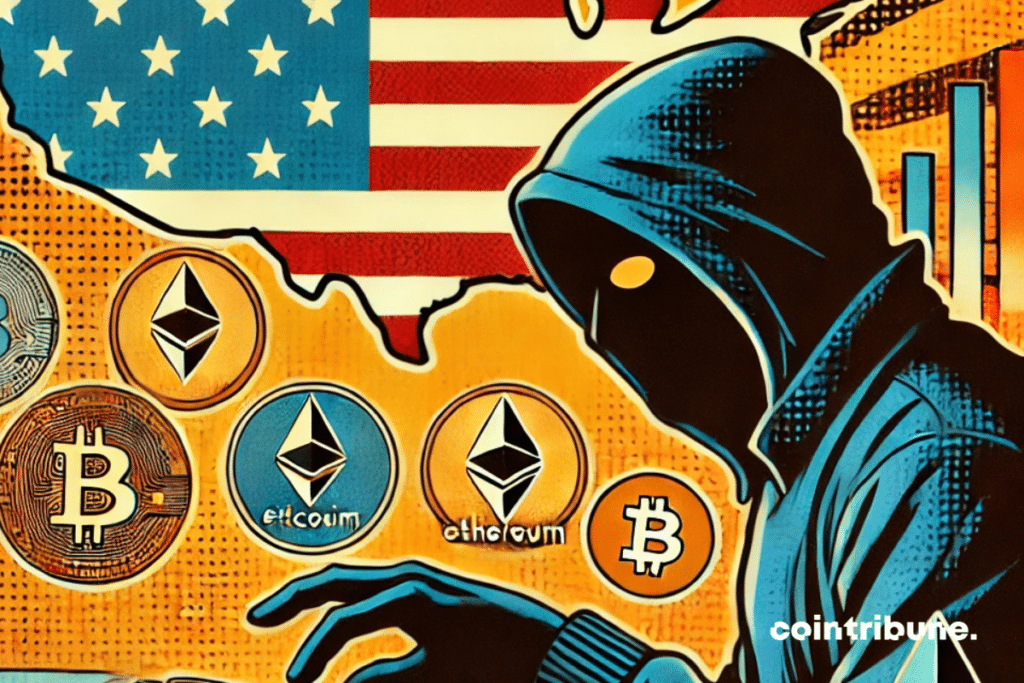Sat. October 26, 2024 ▪
4
min read ▪ by
The security of government-managed assets is increasingly being questioned as attacks on crypto wallets increase. Indeed, the latest incident involving the loss and recovery of over $19 million in crypto by the US government once again illustrates the risks associated with the use of decentralized technologies. This theft, although of an unusual scale, raises concerns about the security of public funds in the field of decentralized finance (DeFi), a sector that is growing rapidly but remains vulnerable.


US government crypto wallet attacked
On October 24, 2024, a crypto wallet controlled by the US government was attacked, resulting in a temporary loss of over $20 million. According to initial reports, the wallet had interacted with decentralized finance (DeFi) protocols and instant exchanges, facilitating the transfer of funds to suspicious addresses. “The wallet saw the majority of its funds, i.e. $19.3 million, returned quickly after the attack,” confirmed American government authorities, Friday October 25, 2024. However, certain assets, estimated at $1.2 million dollars, remain untraceable.
This incident occurs as trading on DeFi platforms continues to grow in popularity, with transaction volumes reaching all-time highs. US authorities are investigating the methods used by the attackers, including the use of anonymous transactions and mixing to hide stolen funds. Although the details of the attack remain unclear, this theft once again highlights the vulnerability of wallets managed by public entities to sophisticated cyberattacks.
An incident revealing structural weaknesses
The attack on this government wallet shows much larger structural flaws within the DeFi ecosystem. Although the majority of funds have been recovered, this incident raises questions about the ability of public institutions to secure their assets in such volatile environments. Relying on decentralized protocols exposes governments to the same risks that individual investors face. This is not the first time that public funds have been targeted, but the scale of this attack demonstrates the urgency of reevaluating security protocols.
Beyond the financial loss, this incident could also have consequences on the confidence of institutional investors in the adoption of cryptocurrencies. If governments themselves struggle to secure their assets, how can they encourage businesses and institutions to invest in DeFi solutions? The question remains open, but one thing is certain: additional measures will be necessary to strengthen the security of funds in this ecosystem. In the long term, this event could push governments to reconsider their cryptocurrency management strategies and even tighten regulations around decentralized protocols.
Ultimately, this attack on a government wallet highlights how security in the crypto sector remains a complex challenge, even for the most well-equipped institutions. As the world of DeFi continues to grow, managing the risks associated with these new technologies must evolve in tandem. Although the recovery of a large part of the funds constitutes a short-term victory, the incident indicates the need for a broader review and regulation of security mechanisms, for both private and public investors.
Maximize your Cointribune experience with our Read to Earn program! For every article you read, earn points and access exclusive rewards. Sign up now and start enjoying benefits.
A graduate of Sciences Po Toulouse and holder of a blockchain consultant certification issued by Alyra, I joined the Cointribune adventure in 2019. Convinced of the potential of blockchain to transform many sectors of the economy, I took the commitment to raise awareness and inform the general public about this constantly evolving ecosystem. My goal is to enable everyone to better understand blockchain and seize the opportunities it offers. I strive every day to provide an objective analysis of current events, to decipher market trends, to relay the latest technological innovations and to put into perspective the economic and societal issues of this ongoing revolution.
DISCLAIMER
The views, thoughts and opinions expressed in this article belong solely to the author and should not be considered investment advice. Do your own research before making any investment decisions.




